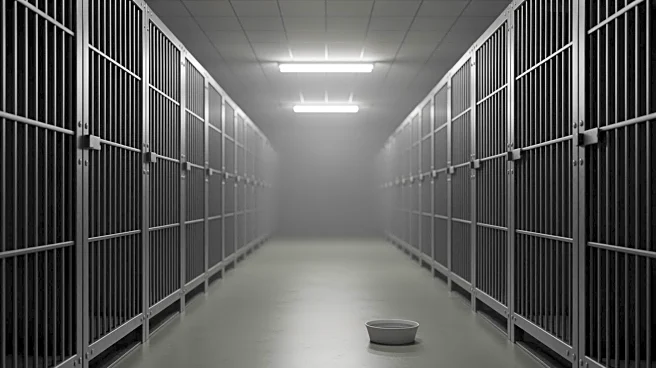What is the story about?
What's Happening?
Argentine singer and model Fede Dorcaz was tragically shot dead in Mexico City on Thursday night. The 29-year-old artist was attacked while driving, and the incident is being investigated as a homicide by the Mexico City Prosecutor's Office. According to the Secretariat of Citizen Security, Dorcaz was shot multiple times, leading to his immediate death. Authorities suspect the attackers were on two motorcycles and are reviewing surveillance footage to identify the perpetrators. Dorcaz, whose real name was Federico Docazberro, had moved to Mexico two years ago to advance his career and was set to debut in a dance contest with his girlfriend, actress Mariana Avila.
Why It's Important?
The murder of Fede Dorcaz has sent shockwaves through the entertainment industry in both Mexico and Argentina. As a rising star, Dorcaz's death highlights the ongoing issues of violence and insecurity in Mexico, which can impact public perception and the safety of artists and celebrities in the region. The incident underscores the challenges faced by international artists seeking to establish their careers in areas with high crime rates. The investigation's outcome may influence future security measures for public figures and could lead to increased scrutiny on the safety of foreign nationals residing in Mexico.
What's Next?
The Mexico City Prosecutor's Office is actively investigating the homicide, focusing on identifying the attackers through surveillance footage. The entertainment community is likely to respond with calls for improved security measures for artists and public figures. Fans and colleagues of Dorcaz are expected to continue expressing their grief and demand justice for the slain singer. The investigation's progress will be closely monitored by both local and international media, potentially influencing public policy on crime prevention and safety for expatriates in Mexico.
Beyond the Headlines
The murder of Fede Dorcaz may prompt discussions on the broader implications of violence against artists and the risks associated with pursuing careers in regions with high crime rates. It raises ethical questions about the responsibilities of host countries to ensure the safety of foreign nationals and the impact of such incidents on cultural exchange and international relations. The tragedy could lead to long-term shifts in how artists approach their careers in potentially dangerous environments.















